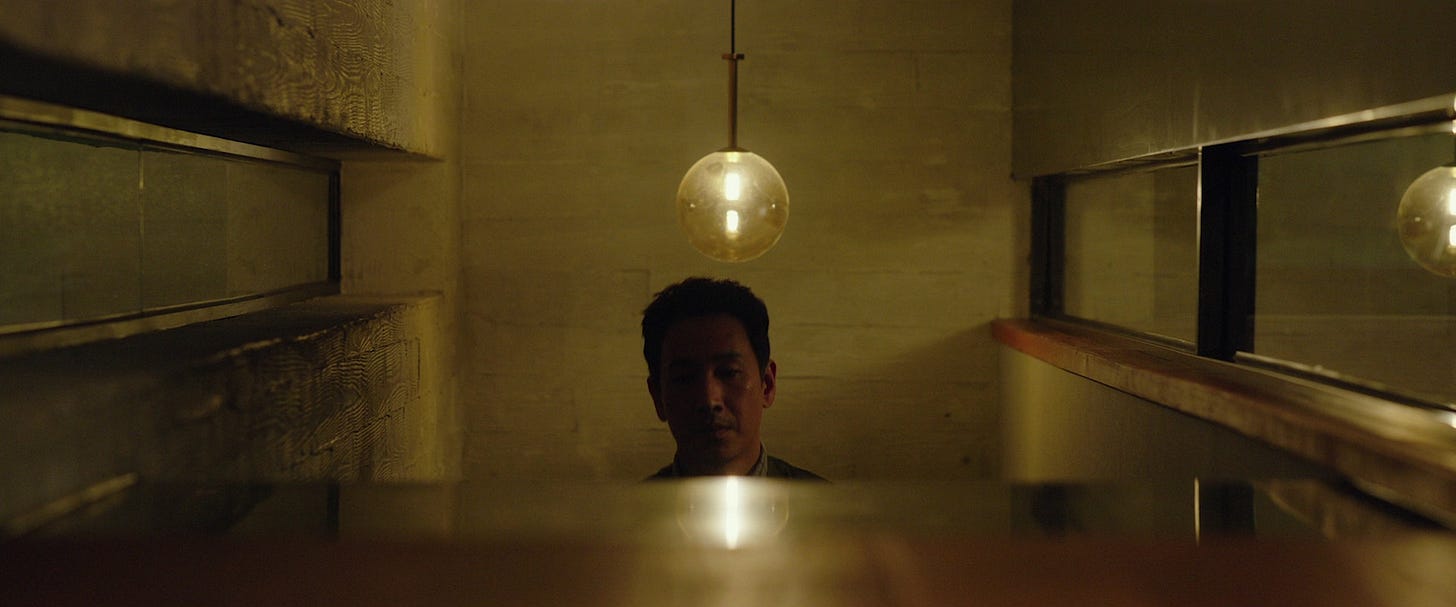Flashing Signals of Desperation: The Hidden Morse Code in Parasite
The film Parasite (2019) captivated audiences worldwide with its sharp critique of class disparity, dark humor, and suspenseful storytelling, ultimately winning four Academy Awards. Among the many symbols in the movie, one that stands out is the flashing light—which at first glance seems like nothing more than a simple malfunction. However, this flickering light is actually a hidden Morse code message, playing a crucial role in the story. It not only enhances the film’s eerie atmosphere but also serves as a metaphor for the struggle of the lower class to communicate with the upper class—a desperate call for help that is left unanswered.
Morse Code: A Silent Cry for Help
Morse code is a communication system that encodes letters and numbers using sequences of dots (·) and dashes (—). Invented in the 19th century by Samuel Morse and Alfred Vail, it was widely used in telegraphy, military communications, and emergency distress signals—such as the internationally recognized SOS: ··· ——— ···. While modern technology has rendered Morse code largely obsolete in everyday life, it remains a crucial means of communication in extreme situations.
In Parasite, Morse code is not merely a tool for communication; it is the last resort for those trapped in the shadows of society, trying to make their voices heard.
Scenes Featuring Morse Code in the Film
First Appearance: The Secret Behind the Flickering Lights
In the early part of the movie, every time Mr. Park enters his house, the lights on the staircase blink in sync with his footsteps. Initially, the audience assumes this is simply an automatic lighting system. However, as the story unfolds, it is revealed that the lights are being controlled manually as a way to send Morse code messages.
The person controlling the lights is Geun-sae, the husband of former housekeeper Moon-gwang. Deeply in debt, he has been forced to hide in the Park family’s basement for years. Unable to communicate with the outside world, his only way of sending messages is by tapping the light switch to flash Morse code. His message is a desperate plea for help:
📝 "HELP ME" in Morse code: ···· · ·-·· ·--· / -- ·
Geun-sae sends this message every night, hoping that Mr. Park will notice and understand. However, Mr. Park remains completely unaware, treating the flickering as nothing more than a minor electrical issue. This symbolizes the fundamental disconnect between social classes—the lower class is constantly trying to make itself heard, yet the upper class remains oblivious.
If you want to experience how Morse code works, try using Morse Code Translator. By encoding and decoding this fascinating language, you might realize that the world is filled with messages waiting to be deciphered.
Second Appearance: A Child Who Sees What Adults Ignore
Midway through the film, Mrs. Park tells Ki-taek’s wife that her young son, Da-song, once fainted after seeing a "ghost" inside the house. This moment serves as a suspenseful foreshadowing. As the story unfolds, the audience learns that the "ghost" was actually Geun-sae lurking in the basement.
Da-song, having trained as a Boy Scout, possesses knowledge of Morse code. Unlike the adults, he notices the unusual blinking pattern of the staircase lights and realizes it is signaling something. However, instead of recognizing it as a plea for help, he believes it is the work of a ghost.
This scene reinforces one of the film’s central themes: even when the lower class manages to send a message, it is either ignored or misinterpreted by those in power.
Third Appearance: Ki-woo’s Discovery and His Father’s Silent Message
Near the film’s conclusion, Ki-woo, after recovering from his severe head injury, continues searching for his missing father. One night, while near the former Park residence, he notices the flickering staircase lights and recognizes it as Morse code. Determined, he begins documenting the patterns and decoding them using a dictionary. Eventually, he successfully translates the message.
It turns out to be a letter from his father, Ki-taek, who is now hiding in the basement.
The message conveys Ki-taek’s longing for freedom and hope that Ki-woo will one day earn enough money to buy the house, allowing him to finally walk out of hiding. However, the film ultimately reveals the cruel reality—this is merely an impossible dream.
The Symbolism of Morse Code
In Parasite, Morse code is not just a tool for communication—it is a profound symbol that conveys:
1️⃣ A cry for help that goes unheard – The people in the basement desperately try to communicate, but their pleas remain unnoticed.
2️⃣ The unbridgeable gap between classes – Even when someone recognizes the signal, it is dismissed as something insignificant or supernatural.
3️⃣ A dream that cannot be realized – Ki-woo deciphers his father’s message, but he is powerless to change his fate.
Morse code in Parasite symbolizes a silent scream—a representation of how many unheard voices exist in society. This film is not just a thriller; it is a reminder that there are people whose messages are ignored, waiting for someone to decode them.
So, the next time you see lights flickering unexpectedly, will you dismiss it as a coincidence? Or could it be someone, somewhere, sending a message in Morse code, whispering: "Help me"?


